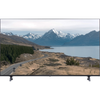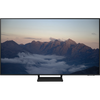A comparison of specs, key information, reviews, and best pricing from top retailers
Last updated -- hours ago | Report incorrect information
What we think

The PerfectRec TV team Learn more
Updated January 10, 2024·
The LG UP8000 is much less expensive and may suffice if you're on a budget and mostly watch TV shows and news in average-lit rooms. However, the Samsung Q70A, while more expensive, offers better performance for movies and gaming, especially with its higher refresh rate suitable for fast action and smoother gameplay. The Q70A is also a better choice for brightly lit rooms and offers a more robust streaming experience. If you want a TV matched for a variety of content and can handle different room brightness conditions, the Samsung Q70A could be the better option, acknowledging its higher cost. Give Feedback
this description is based on the product variant with some specs and product variant with some specs. At the time of writing, the variant with some specs cost some dollars and the variant with some specs cost some dollars.
Advantages of the LG UP8000 (LCD)
- Good viewing angle
- Good reflections
Advantages of the Samsung Q70A (LCD)
- Good for bright room
- Good for gaming
- Good for news, talk, & other TV
- Very good for cartoons & animation
- Good for use as monitor
- Very good motion processing
Key differences
Picture Quality
5.7
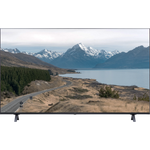
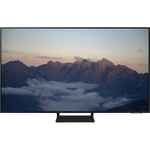
7.2
5.10/10
CONTRAST
8.21/10
5.8/10
COLOR VOLUME SCORE
7.0/10
LED
PANEL TYPE
LED
IPS
PANEL SUB-TYPE
VA
The Samsung Q70A (LCD) has good picture quality, while the LG UP8000 (LCD) has poor picture quality.
Movies & TV
5.3


6.4
5.10/10
CONTRAST
8.21/10
5.5/10
BLACK UNIFORMITY
6.8/10
7.5/10
UPSCALING
7.5/10
Yes
HDR10 SUPPORT
Yes
No
HDR10+ SUPPORT
Yes
No
DOLBY VISION SUPPORT
No
The Samsung Q70A (LCD) is only fair for movies & TV, while the LG UP8000 (LCD) is poor.
The LG UP8000 has poorer contrast, black uniformity, and lacks local dimming, which are crucial for a cinematic experience, making it less suitable for viewing movies and dark scenes. The Samsung Q70A, with better contrast and black uniformity, and even without local dimming, outperforms the LG UP8000, thus providing a fair experience when watching movies and cinematic content.
Gaming
5.7


7.7
6.7/10
RESPONSE TIME SCORE
8.0/10
10.0/10
INPUT LAG SCORE
10.0/10
6.0/10
MOTION PROCESSING
8.0/10
0.0/100
GAMING LOCAL DIMMING
0.0/100
6.0/10
GAME HDR BRIGHTNESS SCORE
7.3/10
The Samsung Q70A (LCD) is good for gaming, while the LG UP8000 (LCD) is poor.
The LG UP8000 has a fair response time and the best input lag, making it decent for casual gaming but slower in fast-paced scenarios when compared to the Samsung Q70A, which has a very good response time and best input lag, allowing for smoother and more responsive gameplay, particularly beneficial in competitive gaming. Additionally, the Samsung Q70A boasts a higher refresh rate of 120Hz compared to the 60Hz of the LG UP8000, offering a more fluid visual experience in games with fast action.
Cartoons & Animation
5.9


8.2
5.9/10
COLOR GAMUT SCORE
7.1/10
5.8/10
COLOR VOLUME SCORE
7.0/10
6.5/10
SDR BRIGHTNESS SCORE
8.6/10
7.1/10
COLORS OUT OF THE BOX SCORE
8.5/10
6.2/10
GRAY UNIFORMITY
6.0/10
The Samsung Q70A (LCD) is very good for cartoons & animation, while the LG UP8000 (LCD) is poor.
The LG UP8000 has decent colors out of the box but a poor color gamut, which may result in less vibrant and varied colors, impacting the overall appeal of animated content. In contrast, the Samsung Q70A boasts very good colors out of the box and a good color gamut, making it more capable of displaying the wide range of colors typically used in cartoons and animation.
News, Talk, & Other TV
6.2


7.6
6.5/10
SDR BRIGHTNESS SCORE
8.6/10
7.5/10
UPSCALING
7.5/10
The Samsung Q70A (LCD) is good for news, talk, & other TV, while the LG UP8000 (LCD) is only fair.
The Samsung Q70A is better for news, talk shows, and other TV programs as it offers very good SDR brightness which helps maintain picture quality under various lighting conditions, and very good color accuracy out of the box, reducing the need for calibration. In comparison, the LG UP8000, while still competent, provides fair SDR brightness which might not be as adequate in well-lit rooms and good color accuracy that may require some adjustment for optimal viewing.
Bright Room
5.9


7.4
7.5/10
VIEWING ANGLE
5.3/10
6.5/10
SDR BRIGHTNESS SCORE
8.6/10
5.8/10
HDR BRIGHTNESS SCORE
7.2/10
7.0/10
REFLECTIONS SCORE
5.9/10
The Samsung Q70A (LCD) is good for bright room, while the LG UP8000 (LCD) is poor.
The LG UP8000 struggles in bright rooms due to its fair SDR brightness and poor HDR brightness, combined with good reflection handling which is not enough to overcome the lack of brightness. The Samsung Q70A, on the other hand, performs well in bright rooms thanks to its very good SDR brightness and good HDR brightness along with good reflection handling, allowing it to maintain visibility even in well-lit environments.
Cost
$830


$948
$400
$600
$800
$1,000
$1,200
$1,400
The LG UP8000 (LCD) has a price of $830 and the Samsung Q70A (LCD) costs $948.
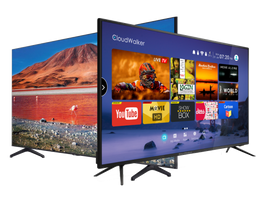
Let Us Help Find Your Perfect TV
Find your new TV
Key similarities
Sports
6.6


6.7
6.0/10
MOTION PROCESSING
8.0/10
60Hz
REFRESH RATE
120Hz
10.0/10
INPUT LAG SCORE
10.0/10
7.5/10
UPSCALING
7.5/10
6.5/10
SDR BRIGHTNESS SCORE
8.6/10
Yes
HLG SUPPORT
Yes
The Samsung Q70A (LCD) and LG UP8000 (LCD) are both only fair for sports.
The LG UP8000 has a fair response time and its motion processing is adequate, but it may not handle reflections as well and its wider viewing angles won't compensate for these limitations. In contrast, the Samsung Q70A offers a very good response time and better motion processing, which is beneficial for fast-moving sports content, but its poor reflections handling and narrower viewing angles could detract from the viewing experience in brighter rooms or when viewing from the side.
Give feedback
We’re constantly working to improve.
How the LG UP8000 (LCD) and the Samsung Q70A (LCD) compare to other TVs
Spec Comparison
| LG UP8000 (LCD) | Samsung Q70A (LCD) |
GENERAL | |||
|---|---|---|---|
| Price | |||
$830 | $948 | ||
Brand | |||
Brand | LG | Samsung | |
Release Date | |||
Release Date | July 5, 2021 | March 2, 2021 | |
Full name | |||
Full name | 65UP8000 | QN65Q70A | |
Screen Size | |||
Screen Size | 65" | 65" | |
Screen Resolution | |||
Screen Resolution | 4K | 4K | |
TV FEATURES | |||
|---|---|---|---|
Operating System | |||
Operating System | webOS | Tizen | |
Sound Quality Score | |||
Sound Quality Score | 6.7/10 | 5.7/10 | |
NextGen Ready | |||
NextGen Ready | No | No | |
HDMI Ports | |||
HDMI Ports | 3 | 4 | |
Coax Ports | |||
Coax Ports | 1 | 1 | |
DISPLAY QUALITY SCORES | |||
|---|---|---|---|
Picture Quality Score | |||
Picture Quality Score | 5.8/10 | 7.2/10 | |
Bright Room Score | |||
Bright Room Score | 6/10 | 7.4/10 | |
Gaming Score | |||
Gaming Score | 5.8/10 | 7.8/10 | |
Movies & TV Score | |||
Movies & TV Score | 5.4/10 | 6.4/10 | |
Sports Score | |||
Sports Score | 6.6/10 | 6.7/10 | |
PHYSICAL | |||
|---|---|---|---|
Dimensions w/o Stand (H x W x D) | |||
Dimensions w/o Stand (H x W x D) | 33" x 57.2" x 2.3" | 32.8" x 57.2" x 1" | |
Dimensions with Stand (H x W) | |||
Dimensions with Stand (H x W) | 35.4" x 57.2" | 35.3" x 57.2" | |
Weight without Stand | |||
Weight without Stand | 47.4 lbs | 46.1 lbs | |
VESA Mount | |||
VESA Mount | 300 x 300 | 400 X 300 | |
DISPLAY | |||
|---|---|---|---|
Color Depth | |||
Color Depth | 10 bit | 10 bit | |
Black Frame Insertion | |||
Black Frame Insertion | No | Yes | |
Auto Low Latency Mode | |||
Auto Low Latency Mode | Yes | Yes | |
Contrast | |||
Contrast | 5.1/10 | 8.2/10 | |
Local Dimming | |||
Local Dimming | 2.5/10 | 2.5/10 | |
SOUND | |||
|---|---|---|---|
Speaker Setup | |||
Speaker Setup | 2.0 | 2.0 | |
Speaker Power | |||
Speaker Power | 20 W | 20 W | |
Dolby Atmos | |||
Dolby Atmos | Yes | Bypass only | |
DTS:X | |||
DTS:X | No | No | |
Shopping
LG UP8000 (LCD)
See more
Dig into reviews and images
Home Media Entertainment
Stratos Kampourogiannis | July 2021
"What we liked on this one was the very sharp 4K images it could display, its good up-scaling capabilities, nice viewing angles and extremely low input lag. Lastly the new webOS 6.0 is great even if it needs some time to get your bearings while the redesigned Magic Remote feels fresh even if functionality remains the same."
Get a great deal on the LG UP8000 (LCD) or the Samsung Q70A (LCD)
About LG
LG, a prominent TV brand from Korea, has played a significant role in popularizing OLED TVs. OLED technology is hailed as the future of TV technology. Their TVs employ WebOS, a proprietary smart TV software that not only offers seamless functionality but also includes gaming-specific features, earning praise from players worldwide. Often regarded as the gateway to unparalleled viewing experiences, LG's mid-range OLEDs come highly recommended, making them a worthwhile investment for those willing to stretch their budget for superior quality.
About Samsung
Samsung, a South Korean electronics manufacturer, holds the title of being the largest global TV vendor in terms of units sold. They offer a diverse lineup of TV products that cater to various budget ranges. A notable achievement in recent years is the development of Quantum Dots, a technology that enhances color reproduction, resulting in richer and more vibrant hues. Samsung TVs are well-regarded for their high manufacturing quality and user-friendly software, making them an excellent choice for consumers seeking an intuitive viewing experience.
Give feedback
We're constantly perfecting our model
TV guides you might be interested in
More comparisons for you
FAQs
FAQs about TVs
Why trust us
This information was produced and vetted by the PerfectRec TVs team. We are a product research and recommendation organization that meticulously reviews and evaluates the latest TV information and makes it digestible for you.
By the numbers
385
TVs evaluated
33,110
TVs stats compiled
21
Proprietary TVs ratings developed
122,430
Recommendations made
18,365
Consumer hours saved
About the TV team
Joe Golden, Ph.D
CEO and TVs Editor
Joe is an entrepreneur and lifelong electronics enthusiast with a Ph.D in Economics from the University of Michigan.
Jason Lew
Staff Expert & Software Engineer
Jason is a staff expert and software engineer that has been making laptop recommendations for 7 years and moderates one of the largest laptop subreddits.
Chandradeep Chowdhury
Staff Expert & Software Engineer
Chandradeep is a staff expert and software engineer and expert in televisions and monitors. He’s been making monitor recommendations for ten years.
Jaime Roldán
TVs Expert
Jaime is a Colombia-based TV expert. He is an electronics engineer with 8 years of experience in the telecom sector and has been making TV recommendations for 12 years.
